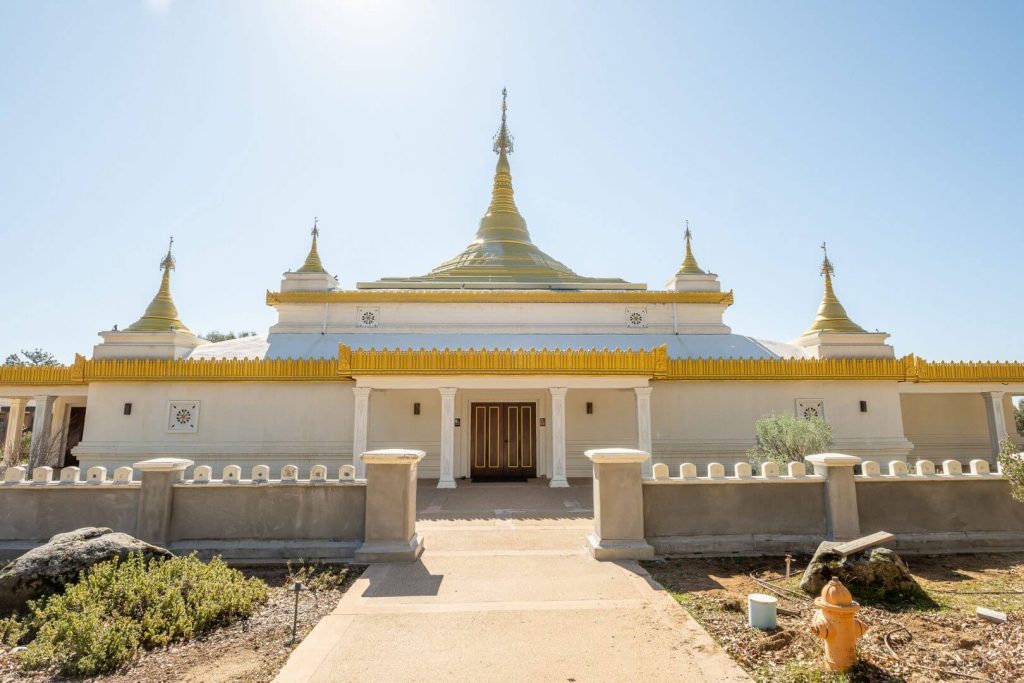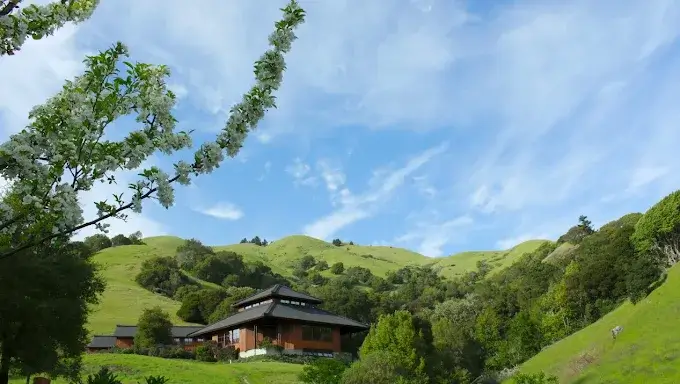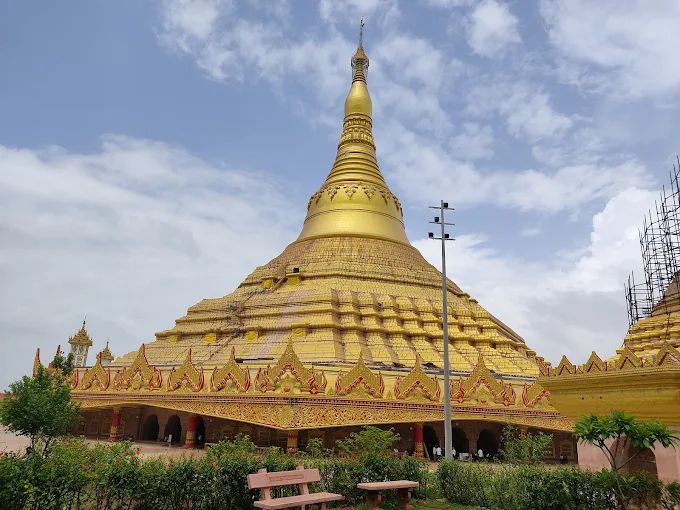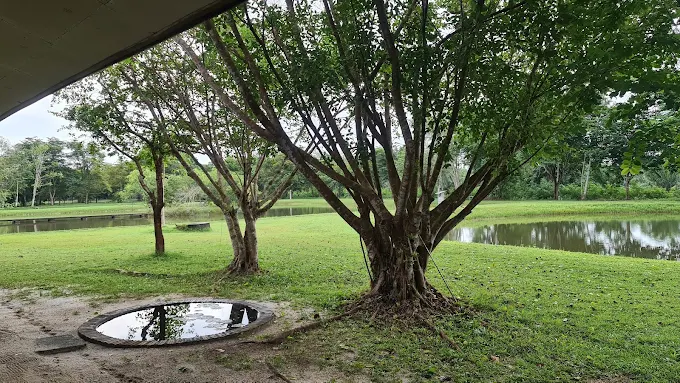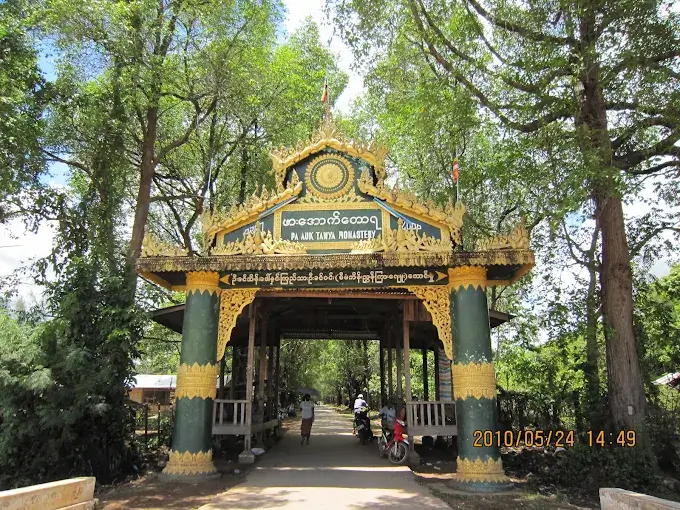7 Best Vipassana Meditation Retreats Perfect for You
Discover the top 7 Vipassana meditation retreats you should consider for deepening mindfulness and inner transformation. From free donation-based centers to serene forest monasteries, explore the best Vipassana meditation retreat options worldwide.
Table of Contents

Introduction
Embarking on a Vipassana meditation retreat can be a life-changing experience. Whether you’re seeking silence, self-awareness, or emotional clarity, these seven premier centers offer authentic environments to deepen your practice. Below, I’ve curated retreats that combine tradition, accessibility, and impact—each worthy of your mindful attention.
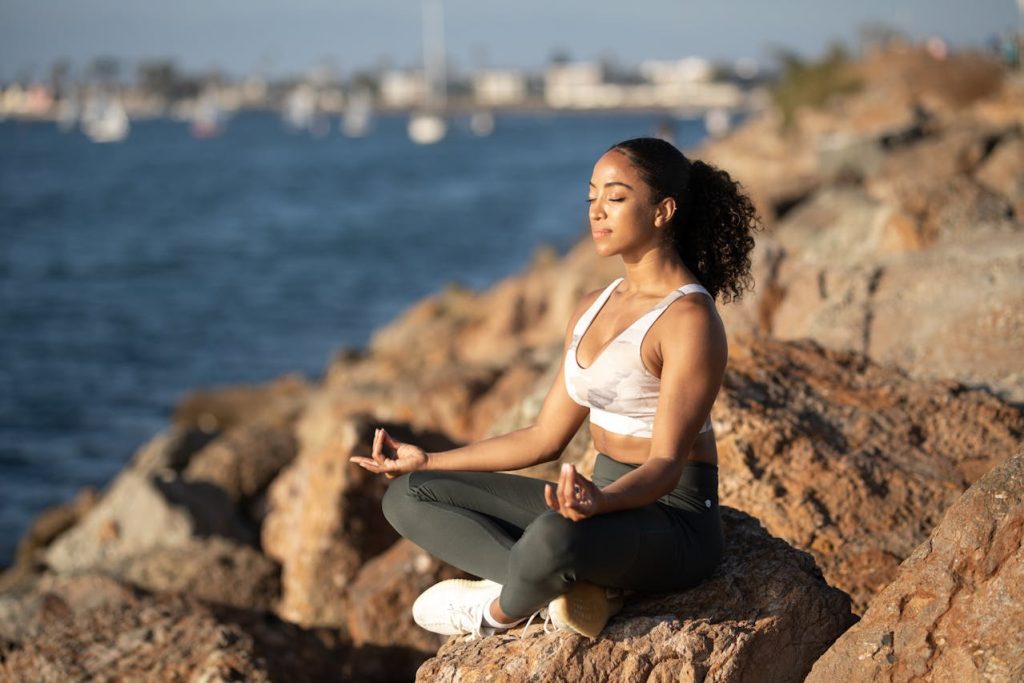
🧘♀️Benefits of a Vipassana Meditation Retreat
Attending a Vipassana meditation retreat offers powerful mind-body benefits, including:
Mental Clarity – Silence and focus help clear your thoughts and improve decision-making.
Emotional Healing – Release stress, anxiety, and suppressed emotions in a supportive space.
Stress Reduction – Mindfulness lowers cortisol levels and builds inner calm.
Self-Awareness—Gain insight into your patterns and behaviors for personal growth.
Discipline & Patience – The structured schedule fosters lasting healthy habits.
Spiritual Growth – Deepen your connection to yourself and develop greater compassion.
Even after the retreat, these benefits often lead to a calmer, more mindful life.
🧘The Ultimate List: Top 7 Vipassana Meditation Retreats to Join
1. Dhamma Mahavana (California, USA)
Located in California, Dhamma Mahavana is one of the oldest and most respected centers for Vipassana meditation retreats in the state. The site offers immersive 10-day residential courses, teaching the technique as passed down from S. N. Goenka. Each retreat includes meditation cells, a spacious hall, lodging, and dining facilities designed to support deep, focused practice. Mahavana Dhamma
Why it stands out:
Rooted in the Goenka tradition (the gold standard for many practitioners).
Excellent facilities promote a distraction-free environment.
Regularly scheduled courses make planning easy.
2. Spirit Rock Meditation Center (California, USA)
In Woodacre, California, Spirit Rock Meditation Center offers a rich assortment of Vipassana meditation retreat offerings grounded in the Insight Meditation tradition. Established in 1985, Spirit Rock hosts hundreds of retreats annually, taught by renowned teachers and supporting diverse communities through affinity programs and scholarships.
Highlights include:
Insight and loving-kindness practices.
Inclusive and supportive programs (BIPOC, LGBTQIA+, etc.).
A blend of residential retreats and daylong sessions—ideal for all skill levels.
3. Global Vipassana Pagoda & Dhamma Pattana (Mumbai, India)
Just outside Mumbai, the Global Vipassana Pagoda houses one of the largest meditation halls globally and anchors the adjacent Dhamma Pattana center, which runs free 10-day Vipassana courses.
Why consider it:
Spectacular architecture—built to seat thousands.
Retreats offered on a donation basis.
Deep cultural and spiritual immersion in the heart of India.
4. Dhamma Mahimā (near Mandalay, Myanmar)
For those seeking the most authentic traditional experience, Dhamma Mahimā in Myanmar offers completely free 10-day Vipassana meditation retreats, funded purely by donations. Retreatants follow a strict schedule—rising at 4 a.m., meditating 11–12 hours daily, and observing noble silence from start to finish. New York Post
True ascetic immersion includes:
Spartan accommodations (shared dorms, cold showers).
No talking, reading, or writing allowed.
A raw, transformative experience—Jack Dorsey called it “the best thing I’ve ever done.” New York Post
5. Suan Mokkh International Dharma Heritage (Thailand)
Established in southern Thailand, Suan Mokkh IDH offers a monthly 10-day silent retreat combining Ānāpānasati (mindful breathing), meditation, and mindful tasks. Participants follow the Eight Precepts, eat vegetarian meals, rise at 4 a.m., and remain silent throughout—creating an environment ideal for introspection. Wikipedia
Key features:
The program offers a structured rhythm that is characterized by simplicity and discipline.
Mindfulness integrated into everyday tasks.
A well-established, reliable retreat schedule (starts the first day of each month).
6. Nā Uyana Āranya (Sri Lanka)
For deeper forest-based Vipassana meditation retreat immersion, Nā Uyana Āranya in Sri Lanka offers the Pa-Auk Samatha Vipassana method. As a principal monastery of the Sri Kalyāṇī Yogāśrama Saṁsthā, this site offers long-term and solo retreats, allowing practitioners to sit in silence surrounded by forest tranquility. Wikipedia
Attractions include:
The forest setting is conducive to extended concentration.
Method taught by senior Pa-Auk teachers.
Suitable for both group and solitary practice.
7. Pa-Auk Forest Monastery (Myanmar)
Another gem is the Pa-Auk Forest Monastery in Mawlamyine, Myanmar. Established in 1926, it’s a renowned center for long-term Vipassana meditation retreats in a classic forest monastery style. The monastery accommodates international monks, nuns, and lay practitioners seeking deep absorption in practice. Wikipedia
Why it matters:
Deep traditional forest meditation lineage.
International community and flexible-length retreats.
Excellent environment for absorption and sustained practice.

🧳 How to Choose the Right Vipassana Meditation Retreat?
Selecting the right Vipassana meditation retreat is key to guaranteeing a meaningful and transformative experience. With so many options worldwide, understanding your personal needs and goals can guide you to the best fit. Here’s a step-by-step approach:
1. Assess Your Meditation Experience
Beginner: If you are new to meditation, look for retreats with clear instructions, supportive guidance, and shorter durations (e.g., 3–10 days).
Intermediate or Advanced: For those with prior experience, longer retreats or silent forest retreats can deepen your practice.
Tip: Most retreats will specify the recommended experience level on their websites.
2. Consider the tradition or teacher’s lineage.
Different centers emphasize different Vipassana styles:
Goenka Tradition: Structured 10-day courses with a focus on body scanning and noble silence.
Pa-Auk Forest Method: Combines concentration (samatha) and insight (vipassana) meditation in a forest setting.
Insight Meditation Centers: Often more flexible and may include loving-kindness meditation.
Tip: Choose a lineage that resonates with your spiritual goals and learning style.
3. Evaluate Retreat Duration and Schedule
Standard 10-day retreats are common for deep immersion.
Some centers offer longer retreats for experienced meditators or weekend/daylong retreats for beginners.
Check for flexibility in start dates and whether the retreat aligns with your personal schedule.
4. Examine Facilities and the environment.
Location: Forest retreats or countryside centers provide quiet and natural surroundings.
Accommodation: Dorms vs. private rooms—some retreats are basic, while others offer more comfort.
Meals: Vegetarian meals are standard, and some retreats offer organic or locally sourced food.
Tip: A serene environment enhances focus and supports a deeper meditation experience.
5. Understand Rules and Guidelines
Most Vipassana retreats require adherence to noble silence, meditation schedules, and ethical precepts.
Some centers are stricter than others—understanding the rules ahead of time ensures you can commit fully.
6. Consider costs and donations.
Many retreats operate on a donation basis (especially Goenka centers).
Others may charge modest fees to cover accommodation and meals.
Ensure the retreat fits your budget while providing the experience you seek.
7. Read Reviews and Testimonials
Look for firsthand experiences from past participants.
Feedback can provide insights into teacher quality, retreat atmospheres, and practical logistics.
Final Tip
Choosing the right Vipassana meditation retreat ultimately depends on your personal readiness, goals, and lifestyle. By considering your experience level, tradition preference, retreat length, environment, and cost, you can select a retreat that supports meaningful transformation and inner growth.
What 1 Year of Vipassana Meditation Can Teach You About Yourself

Vipassana Meditation Retreat Cost in the USA
Goenka Centers – Free to attend; donation (dāna) offered at the end based on your ability.
Insight Meditation Society (IMS)—$900–$1,800 for ~9-day retreats, sliding scale.
Spirit Rock (California)—$500–$800 for 7 days; $3,000–$6,000 for 30-day retreats.
Mountain Hermitage – $2,700–$3,900 for extended retreats; ~$1,000 deposit.
Other Platforms (Retreat.guru, etc.) – $200–$1,000+, depending on location and amenities.
Key tip: Goenka retreats are donation-based, while IMS and Spirit Rock use a sliding scale with scholarships to make retreats more accessible.
Crafting Your Retreat Plan
To make the most of your Vipassana meditation retreat experience:
Match your readiness: Are you prepared for silent ascetic discipline (Dhamma Mahimā) or prefer guided comfort (Spirit Rock)?
Plan Duration & Timing: Some centers (like Suan Mokkh) have set monthly schedules; others accept rolling applications.
Understand Commitment: Vipassana requires full participation—often 10 days of silence and structured routines.
Budget & Logistics: Dhamma courses are often free or donation-based, while centers in the US may charge modest fees.
Teacher Lineage: Choose a tradition that resonates—Goenka, Insight Meditation, Pa-Auk, etc.
Final Thoughts
Choosing the right Vipassana meditation retreat comes down to your personal goals, comfort level, and commitment. These seven centers represent the spectrum—from austere to accessible and traditional to inclusive. Each offers a path toward more profound awareness, mental clarity, and emotional balance.
Summary Table
| Retreat Center | Location | Unique Appeal |
|---|---|---|
| Dhamma Mahavana | California, USA | Goenka tradition in a well-equipped US center |
| Spirit Rock Meditation Center | California, USA | Inclusive Insight Meditation with top-tier teachers |
| Global Vipassana Pagoda / Dhamma Pattana | Mumbai, India | Monumental architecture + free courses |
| Dhamma Mahimā | Myanmar | Raw, austere, traditional free retreat |
| Suan Mokkh IDH | Thailand | Monthly Retreat with mindful tasks and structure |
| Nā Uyana Āranya | Sri Lanka | Forest monastery, Pa-Auk method, secluded serenity |
| Pa-Auk Forest Monastery | Myanmar | Long-term deep practice in authentic forest setting |
Crafting Your Retreat Plan
Learn Meditation
- How to Practice Meditation: A Step-by-Step Guide for Beginners
- How Do I Start to Meditate? A Complete Beginner’s Guide
- What Do You Do When You Meditate? A Complete Guide
- How to Meditate Daily: A Simple Guide to Building a Lifelong
- Meditation Techniques for Anxiety | Calm Your Mind Naturally
- How to Meditate Effectively: A Step-by-Step Guide for Beginners
- Best Way to Meditate: A Complete Guide for Beginners and Experts
- Mind Success: Unlock Your Full Potential with Proven Techniques
- Stress Meditation: How Mindfulness Helps Reduce Stress
- What Do You Do When You Meditate? A Complete Guide
- Breathing Meditation Techniques for Beginners: A Complete Guide
- How to Meditate Daily: A Simple Guide to Building a Lifelong
- Grief Meditation: A Healing Practice for Emotional Recovery
- 5 Minute Meditation Scripts: Quick & Effective Guided Meditation
- Meditating at Home: Guide to Finding Peace and Balance
- Meditation and Sounds: Boost Mindfulness & Relaxation
Vipassana (Basic Mindfulness) Meditation Techniques for Stress Relief and Clarity

Vipassana Meditation Retreats FAQs
Everything You Need to Know
A Vipassana meditation retreat is an immersive program designed to teach and deepen the practice of Vipassana, or insight meditation. Participants often engage in multiple hours of silent meditation daily to cultivate mindfulness, self-awareness, and mental clarity.
Most retreats, especially those following the Goenka tradition, last 10 days, though some centers offer shorter or longer retreats depending on your experience level and availability.
Expect daily meditation sessions, periods of silence (noble silence), simple vegetarian meals, and a structured schedule. The retreat environment supports deep focus and self-reflection.
Many centers, like Dhamma Patthana or Dhamma Mahimā, operate entirely on donation-based funding. Other centers may charge a modest fee to cover accommodations and meals.
Vipassana retreats can reduce stress, improve emotional resilience, enhance focus, promote better sleep, and increase overall well-being by cultivating mindfulness and inner awareness.
Preparation includes setting personal intentions, practicing basic meditation, arranging logistics (travel and packing), and preparing mentally for extended silence and structured daily routines.
No, most retreats require participants to refrain from using phones, computers, or other electronic devices to maintain focus and presence.
Pack light, comfortable clothing suitable for meditation, personal hygiene items, a water bottle, and any items specified by the retreat center, such as meditation cushions or blankets.
Yes, most centers accommodate basic dietary needs. Vegetarian meals are standard, and some retreats may provide options for allergies or special diets if informed in advance.
Noble silence means refraining from speaking, gestures, and unnecessary eye contact. This practice allows participants to deepen concentration and maintain mental clarity.
Absolutely. Many people attend retreats specifically to reduce anxiety, manage stress, and cultivate emotional balance through mindfulness and meditation practice.
While most retreats are designed for adults, some centers offer special programs for teenagers or families, but policies vary by location.
Vipassana retreats focus on insight meditation and observing bodily sensations and mental processes, while other retreats may emphasize relaxation, chanting, or yoga.
Consider factors such as tradition (Goenka, Pa‑Auk, Insight), location, duration, cost, level of discipline, and the type of guidance offered to match your goals and comfort level.
Yes, most retreats offer techniques and guidance that participants can continue at home, enabling them to incorporate mindfulness into their daily lives.
Yes, retreats are highly structured and guided, making them very accessible for beginners who are keen to learn proper technique and experience deep meditation safely.
Some of the top retreats include Dhamma Mahavana (USA), Spirit Rock (USA), Global Vipassana Pagoda (India), Dhamma Mahimā (Myanmar), Suan Mokkh IDH (Thailand), Nā Uyana Āranya (Sri Lanka), and Pa‑Auk Forest Monastery (Myanmar), offering authentic, life-changing experiences worldwide.
Retreats
Meditation Topics You Should Know
- How To Meditate
- Guide to Meditation: Techniques, Benefits & How to Get Started
- Meditation Techniques for Beginners: Simple Practices
- Relieving Stress Meditation: Reduce Anxiety & Improve Well-Being
- Self Meditating: A Complete Guide to Practicing Mindfulness
- 5 Minute Meditation Scripts: Quick & Effective Guided Meditation
- Meditation Methods for Beginners | Start Your Mindfulness Journey
- Meditating at Home: Guide to Finding Peace and Balance
- What Do You Do When You Meditate? A Complete Guide
- Relaxation and Meditation: The Ultimate Guide to Inner Peace
- Mindfulness Meditation for Anxiety: Calm Your Mind
- How to Meditate Daily: A Simple Guide to Building a Lifelong
- How to Meditate Effectively: A Step-by-Step Guide for Beginners
- How to Properly Meditate: A Complete Guide to Mindful Living
- Best Way to Meditate: A Complete Guide for Beginners and Experts
- Learn How Meditate: A Complete Guide for Beginners
- Learning to Meditate: A Complete Beginner’s Guide to Mindfulness
- How Do I Start to Meditate? A Complete Beginner’s Guide
- Meditate for Anxiety: Calm Your Mind & Reduce Stress
- Why You Should Meditate Daily: Transform Your Life
- How to Meditate Properly: A Complete Guide to Mindful Meditation
- How to Meditate Correctly: A Complete Guide for Beginners
- How to Meditate Meditation: A Beginner’s Guide to Mindfulness
- How Do You Meditate? A Complete Beginner’s Guide
- How to be Meditate: A Beginner’s Guide
- How Do I Meditate? A Beginner’s Guide to Mindfulness
- Breathing Meditation Techniques for Beginners: A Complete Guide
- The Power of Being Thankful: How Gratitude Transforms Your Life
Top 5 Meditation Sites You Need to Know for Inner Peace and Focus
🧘♂️ 1. Headspace
Website: www.headspace.com
- One of the most popular platforms for guided meditation and mindfulness.
- Offers structured programs for stress, sleep, focus, and anxiety.
- Includes a user-friendly app with animations and expert tips.
🧘♀️ 2. Calm
Website: www.calm.com
- Known for its soothing interface and soundscapes.
- It offers sleep stories, breathing exercises, and meditation tracks.
- Ideal for both beginners and advanced users.
🧘 3. Insight Timer
Website: www.insighttimer.com
- It offers the world's most extensive free library of guided meditations.
- It features thousands of teachers, live sessions, and music for mindfulness.
- Great for variety and exploring different meditation styles.
🧘♂️ 4. The Chopra Center
Website: www.chopra.com
- Founded by Deepak Chopra, this site blends meditation with Ayurvedic wellness.
- Offers guided sessions, spiritual growth content, and wellness courses.
- Well-respected in both scientific and spiritual wellness circles.
🧘♀️ 5. UCLA Mindful Awareness Research Center
Website: www.uclahealth.org/marc
- A research-based meditation resource from UCLA.
- Offers free guided meditations and mindfulness classes.
- It is backed by neuroscience and is ideal for users looking for evidence-based mindfulness.

